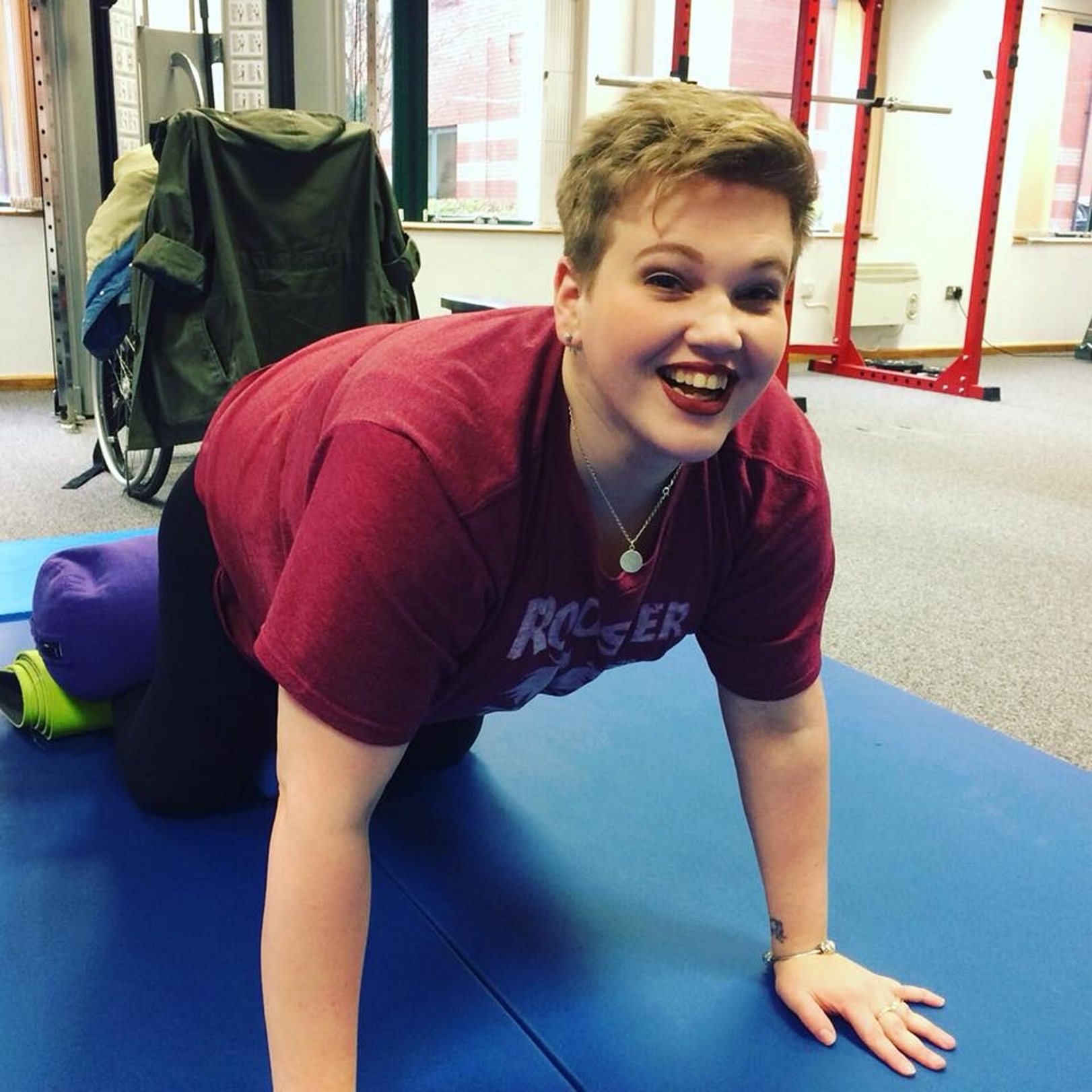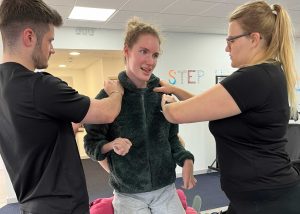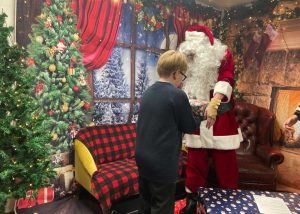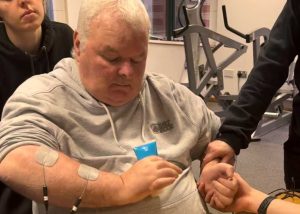Christmas is a time for celebrating with family but in 2019 it was a very special one for Georgina (27) when she drove to her family home in Salisbury from where she now lives in Merthyr Tydfil. It will be the first time she makes this journey independently since a life-changing car accident in March 2017 left her paralysed from the waist down.
On 17th March 2017, it was just a normal work day for Georgie as she drove to West Wales Hospital where she worked as a junior doctor. Unfortunately, whilst on her way to her shift in A&E Georgie was in a car accident that changed her life. Her car slid in the gravel and hit a tree at 50mph: the impact broke Georgie’s spine and in that instant, she lost all feeling and movement in her legs.
Georgie was airlifted to Cardiff Hospital, where she’d done her medical degree, and spent five hours in surgery to stabilise her spine. She then spent the next four weeks at the hospital being looked after by former colleagues. Georgie was then moved to the spinal cord injury rehabilitation centre Rookwood in Cardiff where she underwent six months of physio and rehab before being discharged. However, the physio she received there only went so far.
“Leaving Rookwood, I struggled to sit up by myself and was really worried about being discharged and living by myself without family nearby,” says Georgie. “The support I received though from my family and friends was just incredible and 10 of my closest girlfriends rallied round to help me.”
As if things weren’t bad enough for Georgie, just two weeks after her accident her father had major heart surgery in Bournemouth, so her mother had to split her time between visiting the two of them. During that time her younger brother Harry was a huge source of support.
Then a fellow patient she’d recuperated with in Rookwood told Georgie about Neurokinex, a new spinal cord injury rehabilitation centre in Bristol. Its work focuses on activity-based rehabilitation – working below the point of injury, getting every client out of their wheelchair to work in a standing position to promote core strength, improve bone density and boost circulation. Its innovative methods have a reputation for taking individuals far beyond their predicted recovery level. Georgie couldn’t wait to get started as her primary concern was getting herself back to work so that she could finish her junior doctor training.
Now, 20 months since her accident, Georgie has returned to work two days per week to finish her junior training and aims to be fully certified in June 2019. She’s also teaching with Cardiff University.
“Going to Neurokinex has been completely life changing for me. Sadly, the NHS has nowhere near enough resources to help people in my situation; they prepare you to be able to cope but don’t really expect you to get much better. However, Neurokinex is completely different and really challenges you. In my first session they got me on my knees. Something which I never really thought was going to be possible.”
The improvements came quickly for Georgie, and she’s now able to stand with assistance and do all her own transfers to and from her wheelchair using her upper body. This year Georgie has also taken her first plane journey as a disabled person when she took Harry to Amsterdam for his 21st birthday as a thank you for all the support he has given her since her accident. Importantly, Georgie is back driving, and this alone has boosted her independence beyond measure.
“Having my independence back is just amazing and I can’t thank the team at Neurokinex enough for what they have done for me. To have been able to take my brother abroad as a small thank you was just incredible and to be back driving my own car without help is something I never thought I was going to be able to do after my accident.” Georgie is looking forward to this Christmas. “Last year things were quite tricky as I had to rely on my family coming up to Wales to get me. This year I’m so excited to be travelling home for Christmas independently and not having to rely on other people. Driving home for Christmas means the world to me and my parents have even converted our garage into a downstairs bedroom for me which is great.”
Being able to drive has also meant Georgie can travel to Neurokinex Gatwick to receive even more ground-breaking treatment, including wide pulse muscle electrical stimulation. This protocol targets a different set of fatigue-resistant muscle fibres compared to those more widely used in electrical stimulation. The muscle fibres targeted are closely connected to the spinal cord. Combining a precise electrical stimulus to move a muscle or paralysed limb excites the central nervous system in such a way it can promote neuroplasticity – the brain’s ability to form new neural connections to compensate for injury.
After Christmas Georgie’s New Year goal is to be able to stand without having someone behind her and she’s confident Neurokinex can help her achieve this. She’s also been inspired to write a book about her experience as a doctor becoming a patient and is keen to continue her studies. “Neurokinex hasn’t just restored a high level of physical ability since my accident, it has restored my independence and confidence” says Georgie. “I can’t thank the team enough for their skill and belief in my ability to keep improving.”




